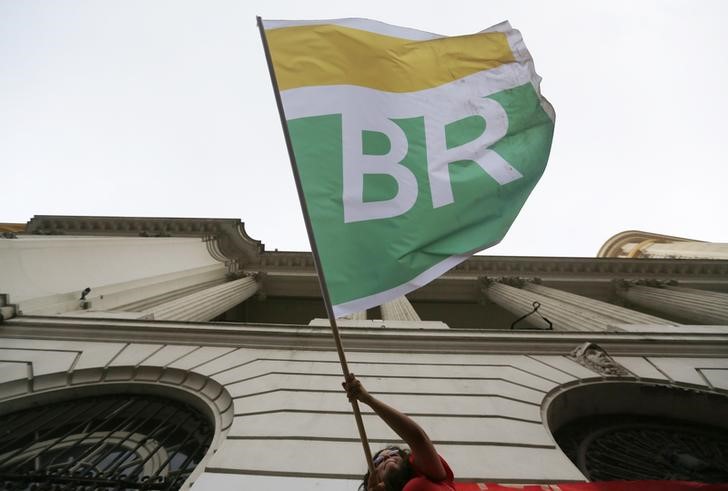By Jeb Blount
RIO DE JANEIRO (Reuters) - A four-day strike against Petrobras gathered steam on Wednesday, cutting crude and natural gas output from the No. 2 South American oil producer and threatening to become the most disruptive walkout at the state-run oil company in 20 years.
Petroleo Brasileiro SA, as Petrobras is formally known, is expected to continue to report significant output cuts after new offshore units were affected by the strike, which began on Sunday.
On Monday Petrobras said it had lost 273,000 barrels a day of crude output, or about 13 percent of its Brazilian output. It has made no formal estimate for output since then.
The cuts have already caused the biggest strike-induced hit to Petrobras' crude output since a 32-day strike in 1995 that led to lines at gas stations and military occupation of refineries. The latest strike is also likely to increase pressure on a company hobbled by a vast corruption scandal and struggling under $130 billion of debt, the largest in the world oil industry.
"This is serious because it is happening in the midst of Brazil's worst economic crisis in decades and in the middle of Petrobras' worst crisis ever," said Adriano Pires, head of the Brazilian Infrastructure Institute, a Rio de Janeiro Energy research company.
"It's like the unions are saying, 'Hey, Petrobras is in intensive care. Let's pull the plug!'" he added.
Petrobras management has said in the past that it can normally maintain operations with no impact to fuel supplies in Brazil for a week or 10 days at the most.
Workers seek to block planned asset sales, reverse budget cuts and protect Petrobras' right to lead the bulk of new offshore oil development. Petrobras has offered an 8.1 percent salary increase, but wages are not the key issue, union representatives say.
"This movement is a clear and open criticism of the government's economic policies," said Deyvid Bacelar, a union activist and worker representative on Petrobras' board of directors.
Those goals, some of which can only be guaranteed by Brazil's Congress, will be hard for Petrobras to meet.
Without $50 billion of planned assets sales and cuts to a five-year investment plan that was recently the world's largest, Petrobras risks being unable pay its massive debts, Chief Executive Aldemir Bendine told Congress last month.
If prolonged, the strike will worsen the company's struggles to raise output and reduce debt, the Standard & Poor's debt-rating agency said on Wednesday.

The government has little money or credit to help Petrobras as it grapples with a gaping fiscal deficit. Officials are counting on growing oil output to close the gap.